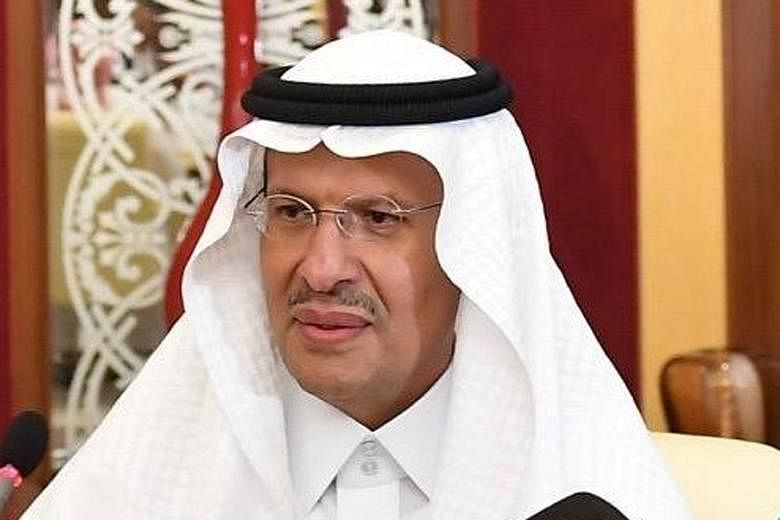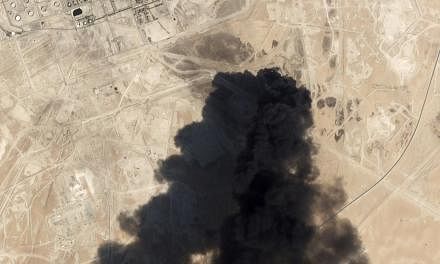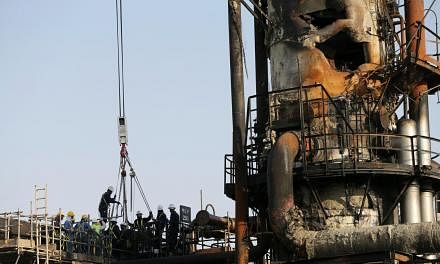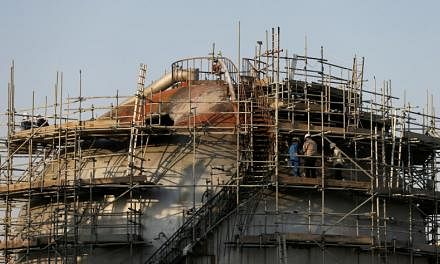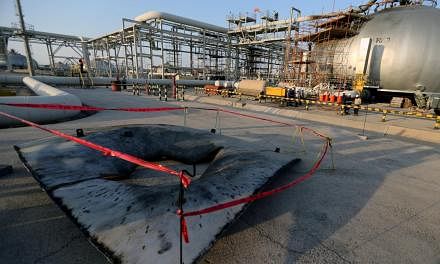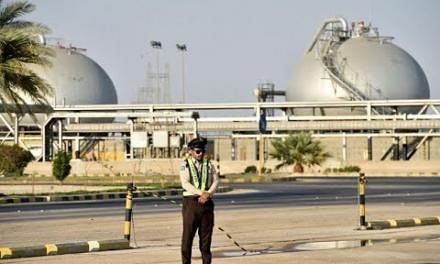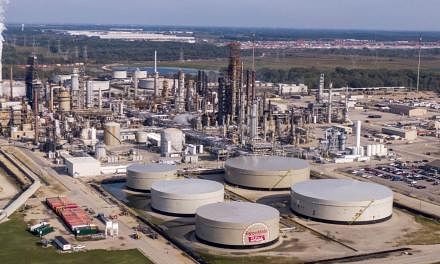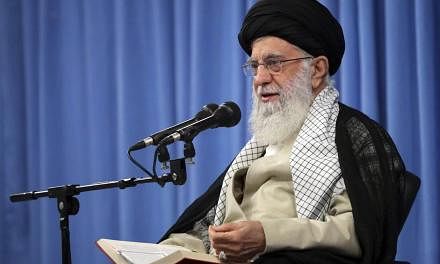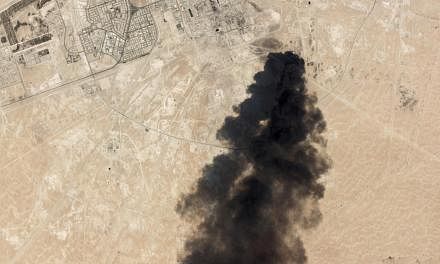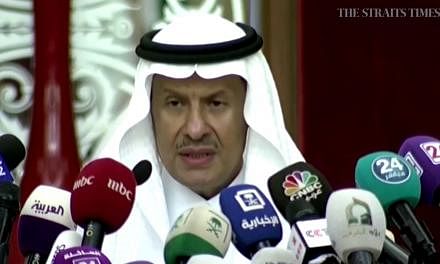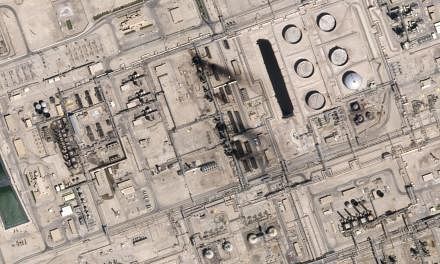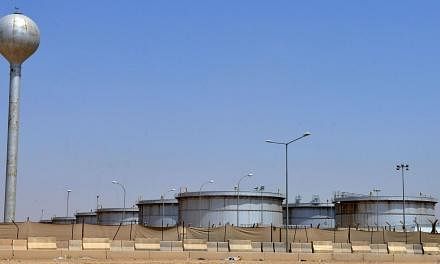DUBAI • Saudi Arabia reassured anxious customers that crude exports will keep flowing as normal and its oil industry can recover quickly from the worst attack in its history.
Oil prices stabilised after two tumultuous days during which they surged the most on record and then pared almost half of that gain. Brent crude slid yesterday, as state-owned oil producer Saudi Aramco - which pumped almost 10 per cent of the world's oil before the crucial Abqaiq facility was struck by missiles or drones last Saturday - said it had revived 41 per cent capacity at a key crude-processing complex.
The global crude benchmark was back below US$64 a barrel after jumping to nearly US$72 in reaction to the disruptions.
Saudi Arabia's oil industry will remain weakened for months as it depletes oil reserves to meet supply commitments and operates without its usual buffer of spare production capacity.
Even as Aramco fixes the damage at Abqaiq, the possibility of further escalation of military conflict hangs over the oil market.
Abqaiq is now processing about two million barrels of crude a day, Aramco chief executive Amin Nasser said at a briefing in Jeddah on Tuesday. The facility should return to pre-attack levels of about 4.9 million barrels by the end of this month, he said.
"During the past two days, we managed to contain the damage by recovering more than half of the production that we lost during that terrorist attack," Energy Minister Abdulaziz bin Salman said at the briefing. "The company will be able to meet all its commitments to customers this month by drawing on its crude oil reserves."
-
SAUDI ARABIA'S CRUDE PRODUCTION CAPACITY
-
11m barrels a day
Output capacity by the end of this month, according to Energy Minister Abdulaziz bin Salman.
12m barrels a day
Full output capacity available at the end of November.
That was a relief for a market that has been racked by uncertainty but progress has been slower than initially expected.
Soon after the weekend attack, officials indicated that the majority of output would be restored within days, with weeks required to get back to full capacity. The outlook became more pessimistic in subsequent days as photos were released showing the scale of the damage.
Prince Abdulaziz and Mr Nasser gave assurances that Aramco's crude exports would not be reduced this month because Aramco will draw down from strategic reserves. Riyadh also temporarily cut the rate at which domestic refineries process oil, making more crude available for shipment overseas.
Still, figures provided by the minister suggested Saudi Arabia will take months to fully recover. Full output capacity of 12 million barrels a day will be available only at the end of November, with about 11 million restored by the end of this month, said Prince Abdulaziz. Saudi Arabia aims to pump 9.8 million barrels a day next month, he said, in line with recent months.
Brent crude dropped 6.5 per cent on Tuesday but that only partially erased Monday's 15 per cent surge, which was the biggest since the contract started trading in 1988. Futures rose 0.4 per cent to US$64.80 a barrel as of 8.12 am London time (3.12pm Singapore time) yesterday.
This historic price gain underscored the unprecedented nature of the disruptions caused by the attack on the Saudi facility.
For decades, Saudi Arabia has been the oil market's great stabiliser, maintaining a large cushion of spare production capacity that can be tapped in emergencies, such as during the 2011 war in Libya.
The suspension of 5.7 million barrels a day of Saudi production - the worst sudden loss in the history of the global oil market - has exposed the inadequacy of the rest of the world's supply buffer.
Beyond the kingdom, others such as Russia, Kazakhstan and the United Arab Emirates could restore a few hundred thousand barrels a day of idled production, but that is not enough to offset Saudi losses.
Aramco has ramped up offshore fields to the maximum to replace some lost production, Mr Nasser said. Customers were also being supplied from stockpiles, though some buyers have been asked to accept different grades of crude, a person familiar with the matter said.
For all the practical fixes to damaged infrastructure that are now under way, Saudi Arabia's failure to prevent the attack and the risk of further military escalation in the region will hang over the oil market for a long time to come.
BLOOMBERG
